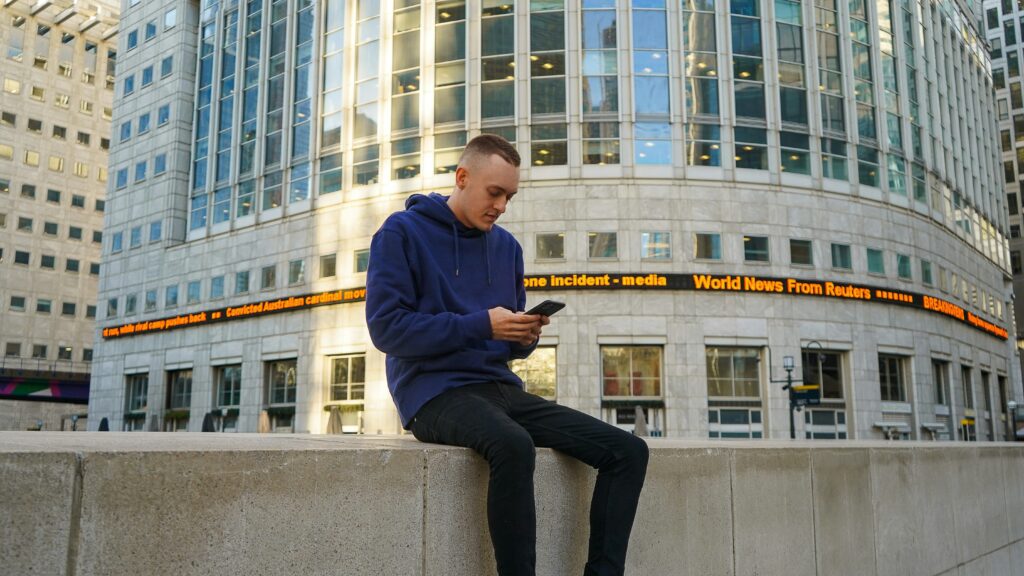Overview: Why Startup Ecosystems Matter
A startup ecosystem is more than just a bunch of companies. It’s the sum of the people, institutions, resources, and culture that help startups survive, scale, and thrive. Founders, investors, incubators, universities, service providers—they’re all part of the mix. The connections between them are what turn a handful of good ideas into real economic engines.
Even in a hyper-digital era, geography still pulls weight. Location dictates access to capital, talent, and infrastructure. It shapes culture and networks. Silicon Valley still matters because of who’s nearby—not just what’s online. Every city that’s serious about becoming a startup hub needs to figure out how these local factors stack up.
The core ingredients? Talent that’s skilled and entrepreneurial. Capital that’s patient and risk-tolerant. Infrastructure—think offices, broadband, transit, and legal frameworks—that doesn’t slow you down. And a culture that accepts failure, champions innovation, and connects people fast. You don’t need to copy Silicon Valley, but you do need these four pillars working in sync.
Global Leaders in 2023
San Francisco (Bay Area) Still the heavyweight. Despite rising costs and tech fatigue, the Bay Area remains the world’s benchmark for startup ecosystems. It’s where venture dollars move fastest, where unicorns are born overnight, and where big exits are still expected. Stanford, Sand Hill Road, and a long line of serial founders keep the cycle alive. The competition is brutal, but so is the opportunity.
London Brexit didn’t break it. London has doubled down on fintech and deep tech, aided by strong government backing and regulatory sandboxes that attract global startups. It’s also become a soft landing pad for non-EU founders looking for stability and access. The city’s financial backbone continues to give it an edge, especially in enterprise-focused disruption.
Singapore Sharp, small, and fast. Singapore is Southeast Asia’s gold standard: pro-business policies, secure capital flows, and a government that treats innovation like national defense. VCs and corporates love its structure—you can launch lean and go regional overnight. Talent density may be lower than in bigger nations, but it’s efficient and well-supported.
Berlin Cheap rent, high minds. Berlin attracts creatives, coders, and misfits with innovative ideas but small wallets. It’s not drowning in capital, but that’s part of its charm: you build differently here, focused on product and people. AI, clean tech, and climate-focused ventures thrive among its flat hierarchies and progressive outlook.
Tel Aviv This city runs on code and courage. Tel Aviv has the highest startup density per capita in the world, and it shows. Military-grade R&D meets bold founders who don’t wait for permission. It’s a global hub for cybersecurity, mobility, and deep tech. Investors keep coming back for one reason: execution is in the city’s DNA.
Emerging Contenders Worth Watching
While global giants continue to lead, several emerging cities are rapidly climbing the ranks as startup powerhouses. These cities offer unique combinations of talent, innovation, and local flavor—which is giving founders new reasons to set up outside of traditional hubs.
Austin: Creative Energy Meets Enterprise Tech
Austin blends its culture of creativity with a growing reputation in enterprise and SaaS innovation. It’s not just the music and nightlife—the city attracts talent from both coasts and maintains a business-friendly environment.
- Home to a vibrant tech meetup and event scene
- Support for both bootstrapped startups and VC-funded ventures
- Benefiting from the U.S. remote work decentralization trend
Bangalore: Talent Density at Scale
Often dubbed the “Silicon Valley of India,” Bangalore is exploding with technical talent. It’s a hub for engineers, developers, and startup founders building everything from fintech to edtech.
- Regional access to one of the world’s largest developer communities
- Mature startup support systems like accelerators and incubators
- Major global firms establishing R&D outposts in the city
Toronto: Innovation Meets Inclusion
Toronto continues to evolve as a global startup hub, especially in sectors like artificial intelligence and clean tech. With a highly diverse population and strong research institutions, the city offers both brainpower and market diversity.
- Strong university-to-startup pipeline, especially in AI
- Government incentives fueling clean energy developments
- High quality of life attracting international talent
São Paulo: Latin America’s Innovation Engine
As Brazil’s economic capital, São Paulo leads the region in startup formation and venture funding. The city is tackling some of the most complex regional challenges with scalable technologies.
- Growth in fintech, agtech, and mobility solutions
- Increasing access to international funding
- A large domestic market eager for innovative solutions
Tallinn: Small City, Big Digital Leap
Estonia’s capital has become a global model for digital governance—and that culture of innovation extends into its startup scene. Tallinn punches above its weight, particularly in cybersecurity and blockchain.
- Pro-digital government and business-friendly regulations
- High internet penetration and digital literacy
- Founders benefit from streamlined e-residency and digital legal services
These five emerging cities aren’t just rising alternatives—they’re shaping what the next generation of global startup ecosystems will look like.
Government Policy: Power Lever or Bottleneck?
Governments aren’t just bystanders in the startup race—they’re key players. Public funding, targeted tax incentives, and fast-track startup visas can make or break a city’s ability to attract and retain early-stage companies. Places like Singapore and Toronto are pulling ahead not just because they host talent, but because their governments actively signal: we want you here.
Startup visas vary, but the best programs are lean, fast, and designed for founders—not red tape. Cities that streamline immigration for high-skill entrepreneurs and their teams are raking in global talent that might otherwise head to Silicon Valley. Want to stay competitive? Open the gates for builders.
Then there’s urban design. It may sound abstract, but when a city clusters incubators, accelerators, universities, and co-working spaces within walking distance, it supercharges serendipity. Berlin and Austin didn’t stumble into success—they built for it. Bike-friendly planning, dense public transit, and high-speed internet are more than nice-to-haves. They’re growth strategy.
Bottom line: ecosystems that win in 2023 are sculpted, not accidental. City planners and policymakers who embrace that truth are shaping the next tech capitals.
Further insights at The Role of Government Policies in Startup Growth
Investor Magnet Cities
Follow the money and you’ll find the next big hubs. In 2023, investor attention shifted subtly but decisively. While traditional strongholds like San Francisco and London still pull in the lion’s share of venture capital, global investors are looking further afield—often lured by cheaper valuations, fresh markets, and untapped talent. That’s why places like Bangalore, São Paulo, and Tallinn aren’t just blips on the radar. They’re actively drawing interest from seed funds and Series A hitters who once stuck to coastal U.S. or European cities.
Local VCs still play a big role, especially in emerging ecosystems. They understand the market better, move faster, and offer access to regional networks. But more often now, deals close with a mix of homegrown and international capital, especially for startups that scale cross-border. The smartest founders build with global standards from day one—not just to impress foreign investors, but to blend into the flow of international capital.
There’s also a directional shift worth noting: in the hottest ecosystems, capital comes to the startup. In others, founders still have to chase it—sometimes relocating entirely. The cities that rise have figured out how to flip that script. They make their ecosystems magnetic. And where capital clusters, innovation often follows.
Founder-Friendly Conditions
Startups don’t grow in a vacuum. Founders need the right soil—affordable rent, solid infrastructure, and a circle that gets what 80-hour weeks look like. That’s why cities with lower cost of living and high quality of life stand out. You can burn the midnight oil easier when you’re not burning all your cash just to stay in town.
Support networks matter too. The rise of freelancer economies and developer hubs means solo founders or small teams can plug into bigger energy sources. Whether it’s a niche co-working space that runs morning stand-ups or slack groups built around verticals, these micro-communities can feel like extensions of your team.
Then there’s the paperwork. Some cities have figured it out—fast-track licenses, tax simplicity, startup visas. Others? Still stuck in the slow lane. Clear, founder-first regulations take startups out of survival mode and get them focused on building. And when the rules don’t get in your way, that’s when good ideas turn into real companies.
Bottom Line: Pick Your City, Pick Your Growth Curve
In 2023, one truth became clear: where you build is almost as important as what you build. Ecosystem fit now carries equal weight with product-market fit. A great startup dropped into the wrong city can stall just as fast as a bad idea launched anywhere. Founders who matched their ventures with cities that offered the right mix of talent, capital, and policy support saw sharper, faster growth—and fewer headaches.
Top-tier ecosystems like San Francisco, Singapore, and Tel Aviv didn’t just host success—they created conditions that made success more likely. From access to world-class mentorship to government-level innovation programs, these cities showed what it looks like when a whole environment is aligned around growth.
At the same time, a handful of scrappy contenders punched above their weight. Places like Tallinn and São Paulo proved that hustle, vision, and local support can sometimes outrun legacy advantages. The lesson? Don’t just follow the hype. Look for real synergy between your team, your mission, and the ecosystem’s DNA.
2023 pulled back the curtain on which cities are truly setup for modern startup demands—and which are coasting on past glory. Scaling smart means knowing your environment as well as your market.


